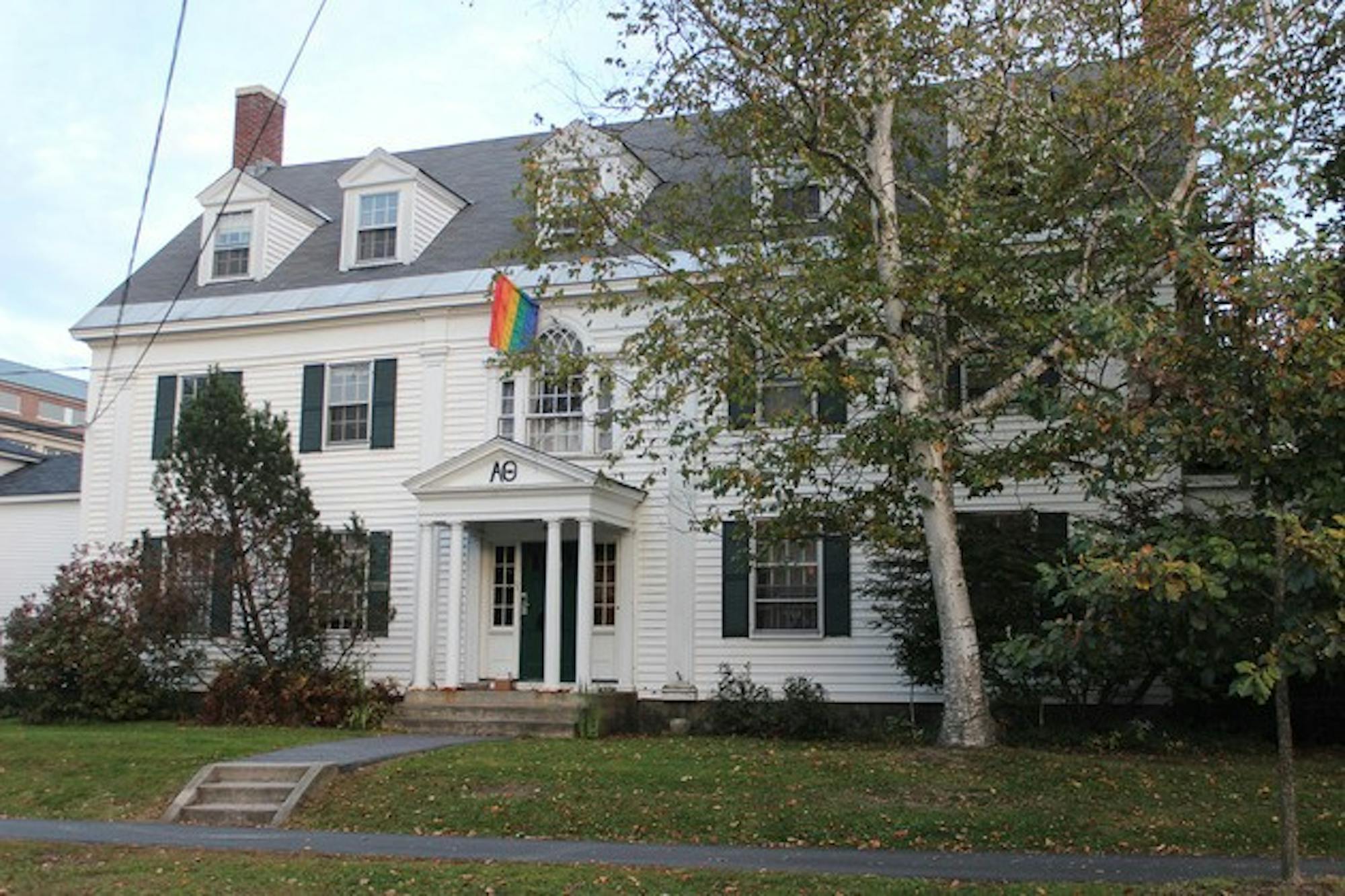Six students accepted bids at Alpha Theta coed fraternity, which uses a formal process, and four new members joined Amarna undergraduate society, whose membership is rolling. Phi Tau coed fraternity extended six bids, which students can sink up until they graduate.
Tabard coed fraternity adheres to a nontraditional rush process, which does not include selective deliberation. To express interest, interested students attended an information session at the house on Oct. 2.
Organization representatives did not respond to requests for comment.
Alpha Theta extended 10 bids and saw six students sink bids. Of the three men and three women who accepted bids, four are sophomores, one is a junior and one is a senior, secretary Nick O'Leary '14 said.
The fraternity usually has a fall class larger than six, but its numbers are consistent with the organization's general trend of six to 10 new members each term, Alpha Theta president Rebekah Kimball '14 said.
Alpha Theta has a rush process similar to that of single-sex Greek organizations on campus.
It hosts an open house for two nights for prospective members to familiarize themselves with the house, followed by a structured rush period that ended Saturday night, when students sank their bids.
Amarna saw three sophomores and one junior accept bids this term, president Julia Salinger '15 said. Amarna has a rolling rush process, and any student can walk into the house or attend a meeting and join throughout the year.
"People will come to the events we host and after a few events if they like the vibe, they can say to a member that they would like to join," Salinger said.
Phi Tau extended bids to six members of the Class of 2016 this term, president Colleen Cowdery '14 said. In addition, there are several juniors who received bids in previous terms have yet to accept them. These students are "essentially a part of the house in everything but name," Cowdery said. "Usually all of the bids that are extended are ultimately accepted," she said. "Although some people may wait a couple terms before sinking their bid in order to have a pledge night with their close friends." Phi Tau has a rolling rush period rather than a traditional formal recruitment process that allows interested students to sign their name in a rush book and current members to participate in a deliberation process. Students who receive bids have an indefinite amount of time to accept and sink their bids.
While many choose to sink their bids immediately, others wait until all of their friends who have been offered bids are on campus so that they can all experience sink night together.
Three new members are required to hold a sink night, Cowdery said. Evelyn Weinstein '16, who will sink her bid this term, said she chose to join the fraternity because its rush process is much more informal than traditional women's rush and she was drawn to the house's welcoming nature.
Representatives from Panarchy undergraduate society did not respond to requests for comment.




